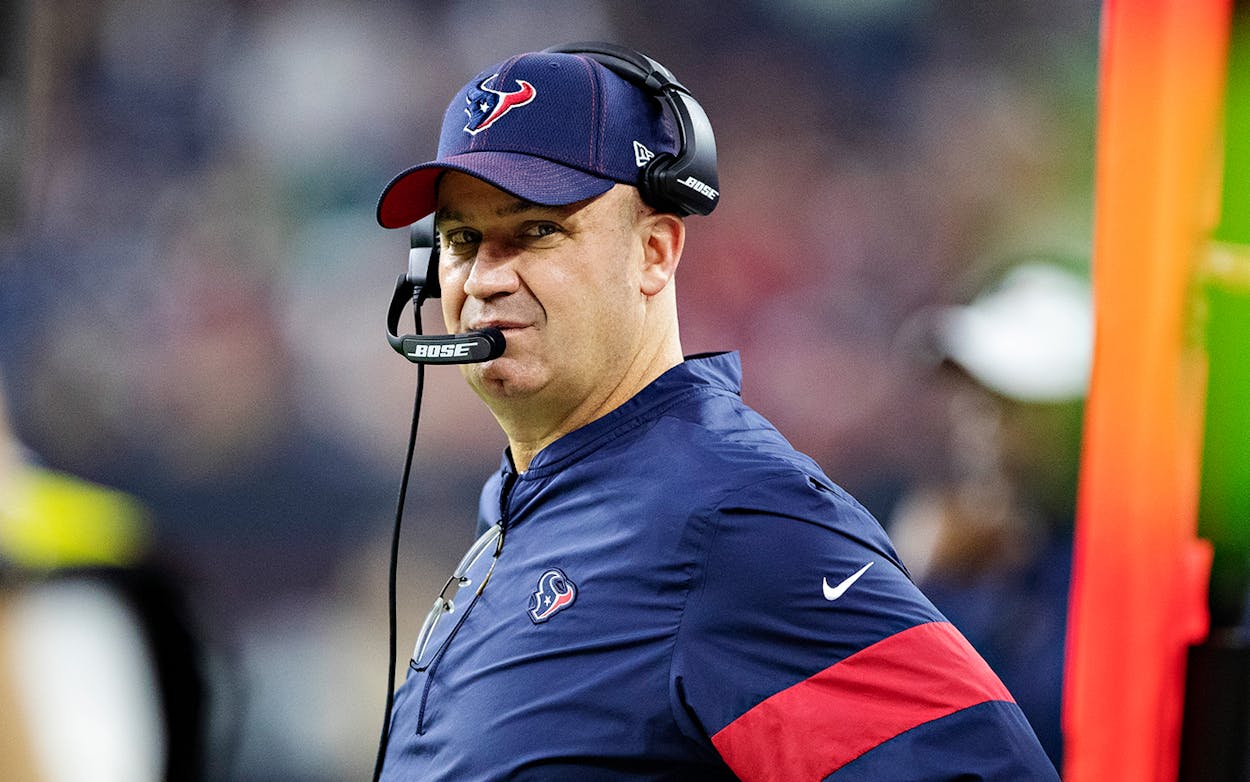The weirdness of the Houston Texans’ past week has been well-documented elsewhere, so we’ll just give you the highlights: The team waited until a week before the start of the season to trade pass-rusher Jadeveon Clowney, who was in the midst of a holdout the team couldn’t resolve. Had they traded him, say, back in April, they might have gotten a return for the star similar to the one the Seahawks got for the similarly situated Frank Clark, netting a first and second-round draft pick for one of the league’s best young players. Instead, they gave Clowney to the Seahawks in exchange for a measly third-round pick and a couple of backup-caliber players at the same position. Meanwhile, they traded away a massive haul for good-but-not-great left tackle Laremy Tunsil (and wide receiver Kenny Stills), giving up two first-round picks and a second to meet the team’s greatest position of need.
Getting a starting-caliber left tackle was a necessity for the Texans, though. And while trading Clowney at literally any time in the offseason before they did would have almost certainly scored them a better return, he wasn’t going to be in Battle Red next week under any circumstances, so we could practically consider it a sunk cost. Which raises an interesting question about this widely lambasted move from head coach Bill O’Brien, who took over personnel decisions for the Texans after they surprise-fired GM Brian Gaine in June: What if all of this is so crazy that it just might work?
The Texans play in a bad division (one that just got worse with the retirement of Colts QB Andrew Luck). Stars Deshaun Watson, DeAndre Hopkins, and J.J. Watt are all good enough that they could bring the Texans to the postseason on their own, and if a few things break their way—say Tom Brady starts feeling his age, or Patrick Mahomes fails to repeat the magic of last season—they could shock the world. Let’s imagine for a moment that all of this works out, and the Texans somehow win the Super Bowl in February. Do these much-derided decisions by Bill O’Brien suddenly become the right moves in hindsight?
Answering that question is trickier than it seems. Generally, when a team is in “win now” mode, it’s because they’ve got an aging star or two who’s making their final run—they don’t need to think about the future, because once Peyton Manning or Brett Favre or whoever retires, the odds are that they’re going to have to rebuild anyway. But the Texans aren’t in that position. J.J. Watt isn’t getting any younger, but at thirty, he’s not exactly at the end of the line, either—and Watson and Hopkins are still young stars who are very much in their prime. Instead, the person on the team who’s making his final run is Bill O’Brien himself. He isn’t in danger of aging out of his job, but he is in jeopardy of being replaced by someone who can do what he hasn’t been able to: finally bring a championship to Houston.
That changes the math of “win now.” A Super Bowl win in February would be thrilling for the city, but no matter what happens in the postseason, the years following it are going to be hard. For one thing, Watson will be due for a contract extension in the next year or two. Hopkins is already one of the highest-paid receivers in the NFL, and they’re likely to face a tough decision around extending Watt in the next couple years, too. It’s a lot easier to mitigate those things when you have a slew of young players on their cheap rookie contracts to develop around them—but three players the Texans would have in that role will be playing for the Dolphins instead. No matter what happens in 2019, Deshaun Watson will spend some of his prime years in the NFL surrounded by late-round draft picks and career backups, as the team manages huge contracts for him, Hopkins, Watt, and probably Tunsil, too.
That’ll be a shame. It’s one thing when a team uses all of their capital to make a Super Bowl run because their stars’ windows are closing, but Watson and Hopkins have a lot of good football ahead of them. Bill O’Brien, though, either wins in 2019, or he’s likely looking for work in 2020—and as the head coach of a team without a general manager, he’s empowered to make roster decisions based on what’s best for him, not what’s best for the long-term health of the Texans’ roster. So if you’re a Texans fan, enjoy the 2019 season, and the playoff run that hopefully follows it—despite having two of the finest young offensive stars in the game, it’s unlikely that they’re going to be in this position again anytime soon.
- More About:
- Sports
- Houston Texans
- Football
- Houston








